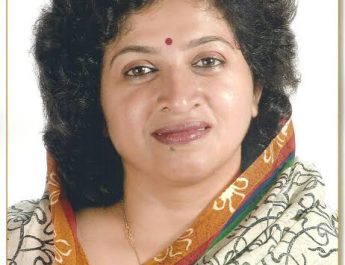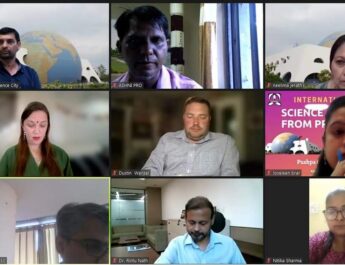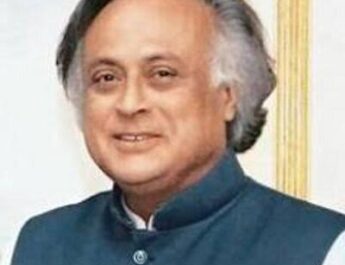From Our Bureau
NEW DELHI: More than 40,000 people from 29 districts of Karnataka signed a memorandum to Chief Justice of India demanding to quash the remission to 11 gang rapists and murderers in the Bilkis Bano case in Gujarat and send them back to jail for life.
“We spoke to a group of women and men regarding the issue. There was fear, confusion and anger in people. No Indian wants this. This is scary and beyond tolerable,” said those who campaigned across the state to collect the signatures.
“How does it matter what religion she comes from or what caste the rapists come from? Does that justify the violence of rape that was done to her?” they asked.
Inspired by a similar signature campaign initiated by women’s groups in Mumbai who reached to the ordinary members of the public for a dialogue on the implications of this remission for the safety and security of Bilkis and for all women victims of sexual violence, the activists of Karnataka released the memorandum in public to seek its endorsement through personal dialogues and conversations.
They said this signature campaign in Karnataka was part of the ongoing protests also done in solidarity with the Padayatra in Gujarat by civil society activists led Magsaysay award winner Sandeep Pandey between September 26 and October 4 that sought to apologise to Bilkis Bano for the grievous act of injustice perpetrated on her. The padayatra was changed into a hunger fast as Gujarat government did not permit them to walk.
This campaign in Karnataka has been done on foot through almost all the districts of the State without the use of social media or campaigning portals. The 40,000+ signatures endorsing this letter represents individual conversations regarding the case – each a dialogue lasting between five to thirty minutes. These conversations were conducted on the streets, in slum communities, in malls and apartment complexes, in colleges, in front of temples, mosques and churches, in bus stands, metro stations and auto stands and the signatories were drawn from all walks of life. They included auto drivers, construction workers, beedi workers, flower sellers, domestic workers and pourakarmikas, tribals in forests, farmers in villages and city dwellers in different towns and cities, activists and advocates, sex workers, students, government functionaries, men, women, gender and sexual minorities, journalists and workers union members.
“College students told us that this is for a good cause and that it is our responsibility to stand with Blikis. They themselves called their other friends and asked to sign,” the campaign organisers said.
“One of the volunteers went to a xerox shop to photocopy the signature sheets for the campaign. After reading and understanding what it was meant for, the shopkeeper did not charge us anything and he himself gave solidarity and signed.”
“Many women we spoke to said that if we respect and felicitate the rapists with garlands and sweets like this, how can we save the girl child in the next generation?”
“We focused on the injustice to Bilkis. It shook the group around us so much that we all cried thinking how afraid and lonely Bilkis must be. People got emotional and silent. At the end of it we had more volunteers who assured us that they will organise signature campaigns in their respective talukas as well.”
“Yes, we participated in a protest when the convicts were released and garlanded. You mean they still have not been sent back to jail?”
“A street vendor in Bangalore refused to sign saying he had seen the Kashmir files and therefore he said he wanted justice for Kashmiri Hindus before he signed the petition for Bilkis.”
“Why are you collecting signatures for a woman from another State and that too a Muslim?”
These were only some of the thousands of one to one conversations shared by the hundreds of volunteers who participated in this unique signature campaign initiated by Karnataka with Bilkis. The campaign saw more than 40,000 people from almost all the districts of Karnataka personally sign on a petition that has been posted to the Chief Justice of India asking him to cancel the remission order granted to 11 convicts imprisoned for life in the case of Bilkis Bano gangraped and killed.
These conversations on justice for Bilkis were tragically not easy given the prevailing atmosphere in the country that has been polarised on religious and caste lines, the organisers said. Even more tragically, several from the Muslim community were afraid to even sign the petition fearing that they would be targeted. But what was encouraging was that despite resistance from some to sign the petition, thousands of ordinary citizens from all communities were able to clearly speak out against this form of violence against women even while condemning the politics of hate and polarisation within which the violence against Bilkis could be justified and the criminal action of the convicts be condoned.
The campaign reassured that even as the country is being engulfed by hate the ethics of love and solidarity has not been totally erased.
The memorandum to the CJI says: The remission granted to the 11 convicts must be revoked and the convicts must be sent back to jail for life. After the Nirbhaya case, the subsequent changes in remission policy since 2014 already recognise that rape and murder are heinous crimes that do not deserve remission and grant Bilkis Bano and her family all the necessary security to protect them from further threats and harassment, restore to them their right to rebuild their lives, live in peace and find normalcy. Protection also needs to be provided to witnesses and supporters.
Bilkis Bano, who was also 5-month pregnant, was gang raped by these 11 men during the anti-Muslim pogrom in Gujarat in February 2002 and she had to witness the brutal killing of her 3-year-old daughter and the gang rape of her mother, sister, aunts, all of who were killed along with 14 members of her family by a mob of 25 men. She survived only because the attackers thought she was dead.





